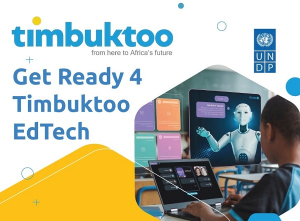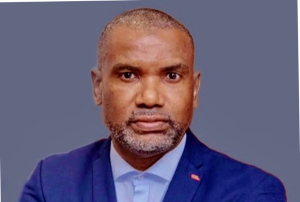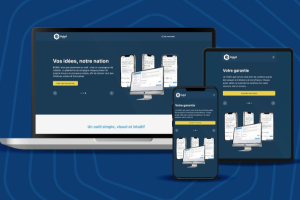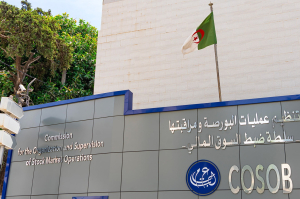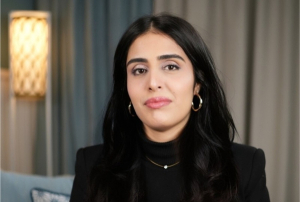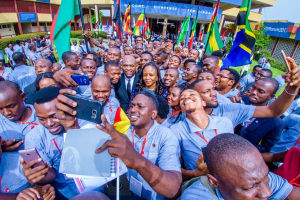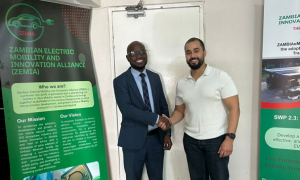La Rédaction
LemFi lance ses services de transfert d’argent en Australie et accélère son expansion
LemFi, la fintech nigériane dédiée aux populations mal desservies, lance ses services de transfert d’argent en Australie après l’obtention de l’agrément du régulateur. Le pays, l’un des plus gros marchés émetteurs de remises au monde, rejoint ainsi le réseau de plus de 2 millions d’utilisateurs de LemFi en Europe et en Amérique du Nord, envoyant des fonds vers plus de 30 pays, dont l’Inde, la Chine et le Nigeria.
Lire aussi:
Google teste l’import d’historiques pour faciliter le passage à Gemini
Le PNUD ouvre les candidatures au programme panafricain Get Ready 4 Timbuktoo EdTech
Le Programme des Nations unies pour le développement (UNDP) lance Get Ready 4 Timbuktoo EdTech, un programme d’incubation en ligne de trois mois pour start-up africaines de technologie éducative disposant d’un prototype. Jusqu’à 50 jeunes pousses bénéficieront de diagnostics personnalisés, modules d’apprentissage, mentorat hebdomadaire, possibilités de subventions et accès au réseau timbuktoo. Les candidatures, ouvertes à tout le continent, sont à déposer ici avant le 18 février 2026.
Lire aussi:
Nigeria : TripDesk, l’IA africaine du voyage d’affaires, atteint 2,3 millions $ de revenus
Avec la tech, Shingie Maramba renforce la conformité et protège les entreprises
Il repense la manière dont les entreprises se préparent face aux imprévus. Son approche allie innovation et technologie pour transformer la gestion des risques en véritable levier de performance.
Shingie Maramba (photo) est un expert en marketing et un entrepreneur technologique originaire d’Afrique du Sud. Il est le fondateur et le directeur des opérations d’Urban Ubuntu, une entreprise spécialisée dans la protection des organisations contre les risques humains et les problèmes de conformité. Ses solutions sur mesure simplifient la gestion quotidienne des risques.
Fondée en 2019, Urban Ubuntu se positionne comme un partenaire de confiance, plutôt qu’un simple fournisseur. Son rôle est d’accompagner les entreprises dans l’identification, la réduction et le suivi des risques, tout en allégeant la charge de travail des équipes.
L’entreprise propose une plateforme complète éponyme qui centralise la gestion de l’ensemble des risques d’une organisation. Elle intègre des tâches avec validation automatique, renforçant ainsi le suivi, le contrôle interne et la conformité réglementaire.
La plateforme comprend aussi un outil d’analyse d’impact permettant d’examiner la structure d’une organisation en profondeur afin d’identifier ses activités, ressources, opérations et actifs les plus critiques. Cette approche aide les entreprises à renforcer leur résilience et à protéger leurs éléments essentiels. Elle permet également de définir et d’automatiser les plans de continuité d’activité, garantissant la reprise rapide des opérations vitales en cas d’incident ou de crise.
Lorsqu’une crise survient, la plateforme déclenche automatiquement des tâches prédéfinies pour l’équipe chargée de la gestion de crise dès qu’un plan de continuité est activé. Ce système assure une coordination fluide, un contrôle rigoureux de la situation et une réactivité accrue.
Urban Ubuntu intègre par ailleurs un module d’évaluation des risques conforme aux meilleures pratiques internationales en matière de gestion du risque. Ce module aide à identifier les menaces, à sélectionner les réponses adaptées et à attribuer clairement les responsabilités dans l’organisation.
Shingie Maramba est titulaire d’une certification en gestion des ventes et du marketing international obtenue en 1999 auprès de la DACO, United States of America, ainsi qu’un diplôme en gestion du marketing du Chartered Institute of Marketing, obtenu en 2001 à la Trust Academy Center.
Sa carrière professionnelle commence en 1998 chez Realtime Computers Africa en tant que responsable des comptes d’entreprise pour Dell. Il a ensuite occupé des postes stratégiques dans plusieurs grandes entreprises, notamment SilverBridge, où il rejoint l’équipe en 2016 comme responsable du développement commercial, puis Equisoft, société internationale de technologies d’affaires, qu’il intègre en 2019 en tant que directeur des solutions patrimoniales et d’assurances pour l’Europe, le Moyen-Orient et l’Afrique.
Melchior Koba
Lire aussi:
Afrique du Sud : WattWallet simplifie l’achat de crédits prépayés d’électricité
DR Congo’s Fogec Launches Digital Platform for SME Financing
- DR Congo’s Fogec launches Bokeli, a digital platform to streamline business plan development and financing applications for SMEs and startups.
- The platform standardizes information for financial institutions and reduces administrative barriers to credit approval.
- Over five years, Fogec has supported nearly 300 projects, totaling $3.2 million, while Congolese startups raised $2 million in 2024, highlighting the financing gap.
The Entrepreneurship Guarantee Fund in Congo (Fogec) launched a digital platform, Bokeli, on February 3 in Kinshasa to help entrepreneurs structure business plans and submit financing applications electronically. The platform is part of DR Congo’s broader effort to strengthen SME and startup access to credit.
Entrepreneurs can access Bokeli at https://bokeli.fogec.cd/ to create business plans, prepare financial documentation, and transmit their applications to relevant institutions. The system aims to standardize the data required by banks and guarantee mechanisms, while reducing administrative hurdles that slow financing approvals.
Fogec said the initiative addresses a key challenge in the Congolese entrepreneurial ecosystem: many project owners struggle to produce technically sound applications that meet banks’ requirements. “Our mission is to facilitate access to financing for SMEs, startups, and artisans by providing guarantees to viable projects,” the institution said.
The launch comes amid a growing entrepreneurial environment, driven by a young population increasingly engaged in economic activities. Despite this dynamism, access to structured financing remains limited. According to Partech Africa, Congolese startups raised $2 million in 2024, up from $1 million in 2023, still modest relative to market potential.
Fogec said it has supported nearly 300 projects totaling $3.2 million over five years. By offering a digital tool for business planning and application submission, the institution seeks to improve project bankability and facilitate interactions between entrepreneurs, guarantee structures, and financial institutions, boosting national productive capacity.
Samira Njoya
Algérie : la Bourse supprime les frais d’introduction pour les start‑up jusqu’en 2028
Alors que les start‑up algériennes peinent encore à accéder à des financements privés structurés, les autorités boursières misent sur un levier inédit pour rapprocher l’écosystème entrepreneurial du marché financier.
Les start‑up labellisées peuvent lever des fonds à la Bourse d’Alger sans payer les frais d’introduction, grâce à un dispositif exceptionnel valable jusqu’en 2028. La mesure a été annoncée le dimanche 1ᵉʳ février par la Commission d’Organisation et de Surveillance des Opérations de Bourse (COSOB), en coordination avec la Société de Gestion de la Bourse des Valeurs (SGBV) et Algérie Clearing.
Le mécanisme cible les opérations réalisées via le compartiment « Croissance », un segment du marché des titres de capital destiné aux entreprises à fort potentiel. Les start‑up éligibles bénéficient d’une exonération totale des frais liés à l’obtention du visa sur les documents d’information, à l’admission à la cote, ainsi qu’à l’administration, la conservation et la gestion des titres.
Le dispositif s’applique aux levées de fonds plafonnées à 500 millions de dinars algériens (3,85 millions USD) et couvre toutes les opérations engagées entre 2026 et 2028. En supprimant ces coûts d’entrée, souvent dissuasifs pour les jeunes entreprises, les autorités cherchent à lever un frein majeur à l’accès au marché boursier comme source de financement alternatif. Le paysage entrepreneurial algérien compte aujourd’hui plus de 7800 start‑up enregistrées sur le portail officiel startup.dz, dont environ 2300 ont obtenu le label officiel « start‑up ».
Cette initiative s’inscrit dans une stratégie plus large de soutien à l’entrepreneuriat et à l’innovation, présentés par les pouvoirs publics comme des leviers essentiels de diversification de l’économie nationale. Elle intervient dans un contexte où la Bourse d’Alger reste de taille modeste, avec seulement huit titres cotés à la fin du premier semestre 2025, incluant les récentes introductions de la Banque de Développement Local (BDL) et de la start‑up Moustachir.
À ce jour, Moustachir demeure la seule start‑up algérienne à avoir accédé à la cote. Introduite en 2024, l’entreprise avait fixé des objectifs ambitieux : un chiffre d’affaires supérieur à 55 millions de dinars en 2025, avec une trajectoire projetée au‑delà de 187 millions de dinars à l’horizon 2028. En moins de deux ans, la start‑up s’est déjà implantée sur plusieurs marchés du Moyen‑Orient, notamment à Oman et aux Émirats arabes unis.
Samira Njoya
Edité par Sèna D. B. de Sodji
Lire aussi:
L’Algérie se dote d’un cadre institutionnel renforcé pour prévenir les cyberattaques
VivaTech ouvre les candidatures pour l’AfricaTech Award 2026 à Paris
VivaTech a lancé les candidatures pour l’AfricaTech Award, qui met en lumière les jeunes pousses africaines les plus innovantes. Six finalistes seront invités à pitcher à Paris du 17 au 20 juin 2026, avant la remise de prix lors de la cérémonie globale. Le concours est ouvert aux startups basées en Afrique, déjà financées à plus de 150 000 dollars. Les candidatures sont acceptées ici jusqu’au 16 février.
Lire aussi:
Qualcomm ouvre les candidatures pour son programme africain de mentorat start-up
Khouloud Abada Launches RenYou to Streamline Skin Health Follow-Up
- Tunisian engineer Khouloud Abada founded RenYou in 2023 to structure long-term skin health monitoring.
- The application combines artificial intelligence with direct support from dermatologists and medical specialists.
- RenYou integrates lifestyle and nutrition factors into dermatological follow-up.
Khouloud Abada is a Tunisian entrepreneur and a trained engineer specializing in chemical process engineering. She founded and currently leads RenYou, an application designed to support people seeking better skin care through direct involvement of doctors and dermatology specialists.
Founded in 2023, RenYou introduces a new approach to telemedicine applied to skin health. The application aims to simplify the care pathway while ensuring monitoring under the supervision of healthcare professionals. The platform prioritizes personalized support tailored to each user’s needs rather than a standardized solution.
The platform relies on artificial intelligence to help users understand their skin condition, track changes over time, and receive structured guidance to treat dermatological issues. RenYou emphasizes accessibility by simplifying access to information and follow-up tools, allowing users to manage their skin care autonomously and continuously.
At the same time, the application adopts a holistic approach. RenYou does not treat the skin in isolation but incorporates factors such as diet and lifestyle that directly affect skin health. This approach reflects the idea that skin health often mirrors overall living habits. In line with this vision, RenYou also develops educational content aimed at informing and raising awareness beyond the application’s core use.
Khouloud Abada graduated from the Preparatory Institute for Engineering Studies in Tunis, where she earned a bachelor’s degree in applied sciences in 2016. She later obtained a master’s degree in energy from the University of Tunis in 2020, followed by a master’s degree in mechanical engineering in 2021 from the Frankfurt University of Applied Sciences in Germany.
She began her professional career in 2020 as a chemical process engineer at Medis, a company specializing in licensing generic medicines to pharmaceutical groups. From 2021 to 2023, she worked as a mechanical engineer at Audi UK within the British automotive group, before fully committing to her entrepreneurial project with RenYou.
Melchior Koba
Le programme d’entrepreneuriat Tony Elumelu ouvre les candidatures 2026 aux Africains
La Fondation Tony Elumelu a ouvert les candidatures pour la nouvelle édition de son programme d’entrepreneuriat, qui offre 12 semaines de formation en ligne, mentorat et un capital d’amorçage de 5000 dollars aux porteurs de projet africains. Les entrepreneurs sélectionnés auront aussi accès au réseau de la fondation et à des opportunités de financement complémentaires. Les inscriptions sont ouvertes ici jusqu’au 1er mars.
Lire aussi:
Le Marocain Yakeey lève 15 millions de dollars pour son expansion en Afrique
EV24.africa et ZEMIA s’unissent pour accélérer la mobilité électrique en Zambie
EV24.africa, plateforme africaine d'approvisionnement et de livraison de véhicules électriques, s’associe à l’association zambienne ZEMIA pour accélérer le déploiement de solutions de mobilité électrique dans le pays. Le partenariat couvre l’approvisionnement, l’importation et le déploiement de flottes pour entreprises, institutions publiques et particuliers. Il vise à réduire les coûts de transport, tirer parti du mix électrique majoritairement hydraulique et faire de la Zambie un marché pilote de l’électromobilité en Afrique australe.
Lire aussi:
WhatsApp teste des comptes secondaires contrôlés par les parents sur Android
Qualcomm ouvre les candidatures pour son programme africain de mentorat start-up
Qualcomm a lancé les candidatures pour la nouvelle édition de son programme de mentorat Make in Africa, destiné aux jeunes pousses technologiques du continent. Sans prise de participation, l’initiative offre accompagnement business, appui d’ingénieurs pour le développement matériel et logiciel et conseils en protection de la propriété intellectuelle. Les start-up intéressées ont jusqu’au dimanche 15 février pour soumettre leur dossier en ligne.
Lire aussi:
Le Marocain Enakl lève 2,3 millions de dollars pour améliorer son offre



